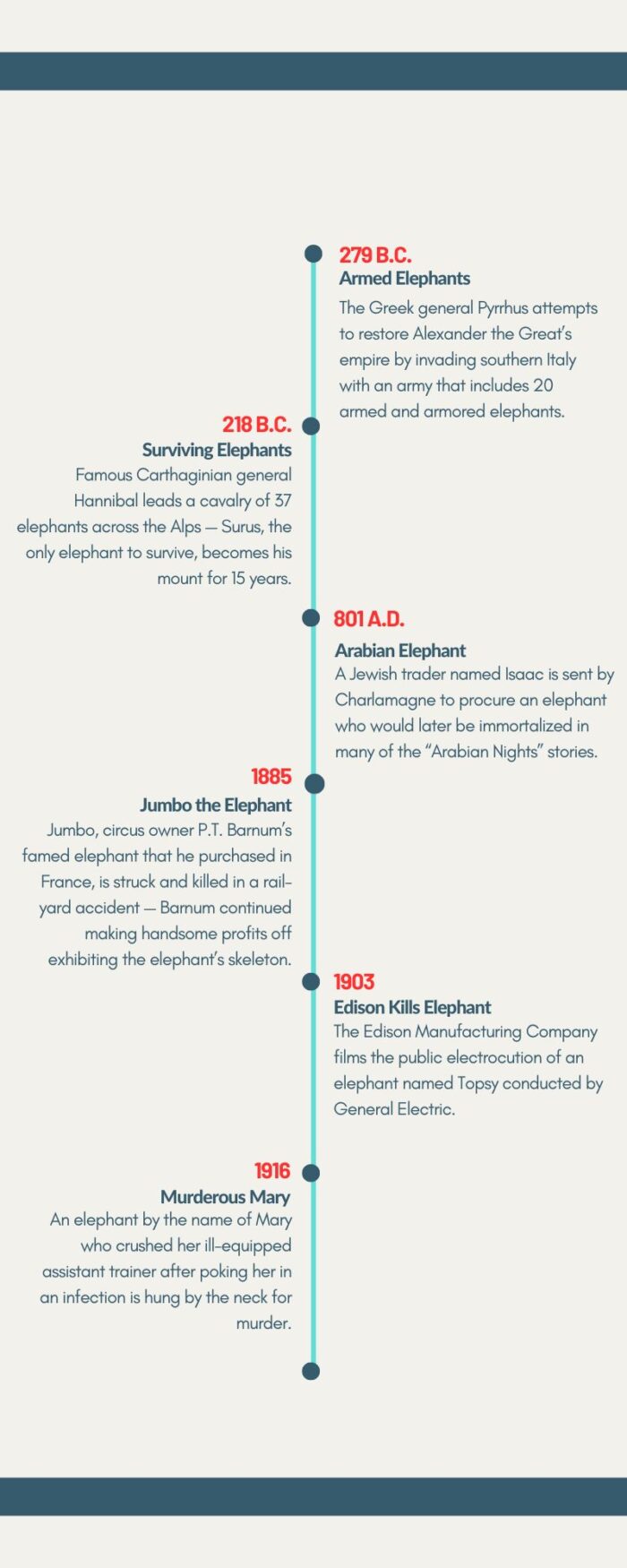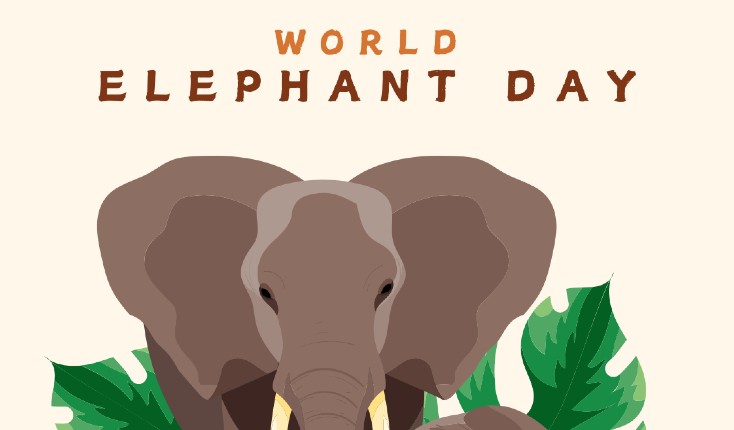World Elephant Day
Personifying prehistoric beauty, theological relevance, and environmental importance, World Elephant Day on August 12 celebrates one of Earth’s most magnificent creatures. Sadly, over the last decade, the elephant population has dropped by 62%, and they could be nearly extinct by the end of the next decade.
Every day, it’s estimated that 100 African elephants are killed by poachers, driven by the demand for ivory in Asian markets. World Elephant Day was created to raise awareness and inspire change to save these majestic animals. Since its founding in 2012 by Patricia Sims, the Elephant Reintroduction Foundation of Thailand, and over 100 elephant conservation organizations worldwide, World Elephant Day has reached millions who love elephants and want to help.
World Elephant Day is a time for organizations and individuals to come together and speak out about the threats elephants face.
This powerful global movement supports conservation solutions to make the world safer for elephants and their habitats, ensuring that future generations can appreciate these incredible creatures.
Let’s unite on August 12 for World Elephant Day 2024 to help protect elephants from the many dangers they face.
History of World Elephant Day
Elephants and humans have a long history together. The African elephant, due to its vast natural environment, size, and imposing presence, has largely resisted captivity and domestication. In contrast, the Asian elephant has lived alongside humans for over 4,000 years, earning deep respect and becoming part of various cultural and spiritual traditions. In Thailand, elephants are a national symbol, with a dedicated holiday and even the possibility of receiving a royal title from the king.
Despite this connection, there is still much we don’t know about elephants. They have the largest brain of any land animal, making them intelligent, conscious, social, and empathetic — traits we value in ourselves. Elephants share many characteristics with humans and may be more like us than any other animal. However, we are endangering their future and threatening their vital habitats in Asia and Africa.
Elephants are a keystone species, crucial for maintaining healthy ecosystems and promoting biodiversity. As the World Elephant Day website says, “To lose the elephant is to lose an environmental caretaker and an animal from which we have much to learn.”
We can save elephants by enforcing stronger protection policies and laws against poaching and the illegal ivory trade, better managing their natural habitats, educating people about the elephant’s critical role in ecosystems, improving the treatment of elephants in captivity, and reintroducing captive elephants into wildlife reserves to help restore endangered populations. These are just some of the goals of various elephant conservation organizations around the world.
Elephants are running out of space and time. We must work together to stop poaching, prevent ivory trafficking, and create protected natural sanctuaries where elephants and other wildlife can thrive — before it’s too late and they disappear forever.
World Elephant Day timeline

World Elephant Day FAQs
How many elephants are left in the wild?
There are only about 40,000 to 50,000 elephants left in the wild; the rest are in captivity.
How long do elephants live?
Most elephants can live up to around 60 years.
What’s killing the elephants?
Elephants can die from various causes, including toxic bacteria in water, anthrax poisoning, human poisoning, viral infections from rodents, or pathogenic microbes, according to veterinarians and wildlife experts.
What are elephants afraid of?
Elephants can be startled by things that move quickly near them, like mice and cheetahs. They have been observed and filmed reacting fearfully to anything moving around their feet, regardless of its size.
HOW TO OBSERVE WORLD ELEPHANT DAY 2024
1. Donate!
Contribute to the World Elephant Society or the Elephant Reintroduction Foundation, which work on restoring natural habitats, changing legislation, and rehabilitating elephants.
2. Participate
Spread the word about the plight of elephants, encourage your friends to sign a pledge, or show your support on social media using hashtags like #WorldElephantDay or #WorldElephantDay2024.
3. Educate yourself
Find out what others are doing to protect and conserve elephants. Support efforts to care for these amazing animals in ways that are sustainable and non-exploitative. Also, consider joining World Elephant Day’s list of supporters.
5 FUN FACTS ABOUT ELEPHANTS
1. Their tusks are teeth
Elephant tusks are actually enlarged incisor teeth that start to appear when elephants are about two years old.
2. They eat a lot
Elephants need up to 150 kg of food each day, which is roughly the same as eating 150 bags of chips!
3. Endangered elephants
The Asian elephant is an endangered species, with fewer than 40,000 left worldwide.
4. Threatened elephants
The African elephant is considered threatened, with fewer than 400,000 remaining globally.
5. Missing elephants
At the start of the last century, Thailand had over 100,000 elephants. Today, there are fewer than 4,000.
Why World Elephant Day is Important
A. We love elephants
Humans haven’t always treated elephants well, despite all they’ve done for us. They are intelligent, loving, and mysterious creatures that need to be preserved.
B. They’re crucial to the environment
Elephants are a keystone species, meaning they help create and maintain their ecosystems. They enable many plant and animal species to thrive in these environments. Losing elephants would severely impact these ecosystems, leading to habitat destruction and a decrease in biodiversity.
C. We don’t know much about them
Elephants have the largest brains of any living mammal. There is still much to learn from them, and we can’t do that if they become extinct.
World Elephant Day dates
| Year | Date | Day |
|---|---|---|
| 2024 | August 12 | Monday |
| 2025 | August 12 | Tuesday |
| 2026 | August 12 | Wednesday |
| 2027 | August 12 | Thursday |
| 2028 | August 12 | Saturday |
Also Read:
International Youth Day
International Day of The World’s Indigenous People
National Dollar Day – August 8, 2024
































































